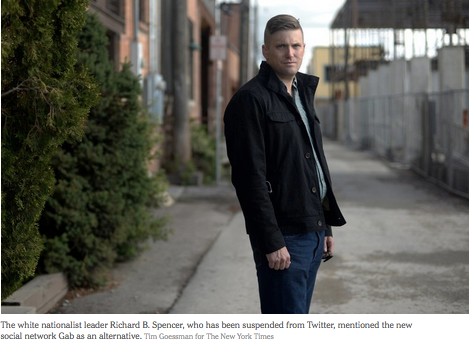When the white nationalist leader Richard B. Spencer was suspended from Twitter recently, he hopped over to YouTube to address his supporters. “Digitally speaking,” he said, Twitter had sent “execution squads across the alt-right.” He accused Twitter of “purging people on the basis of their views,” calling it “corporate Stalinism.” Then he mapped out a path forward. “There’s obviously Gab, which is an interesting medium,” he said. “I think that will be the place where we go next.”
Gab is a new social network built like a hybrid of Twitter and Reddit — posts are capped at 300 characters, and the crowd votes to boost or demote posts in the feed. But Gab’s defining feature is its user guidelines, or rather, its lack thereof. Gab bans illegal activities — child pornography, threats of violence, terrorism — and not much else. “Facebook, Twitter and Reddit are taking the path of censorship,” Utsav Sanduja, Gab’s chief communications officer, told me via email. “Gab does not.”
Think of Gab as the Make America Great Again of social sites: It’s a throwback to the freewheeling norms of the old internet, before Twitter started cracking down on harassment and Reddit cleaned out its darkest corners. And since its debut in August, it has emerged as a digital safe space for the far right, where white nationalists, conspiracy-theorist YouTubers, and minivan majority moms can gather without liberal interference.




